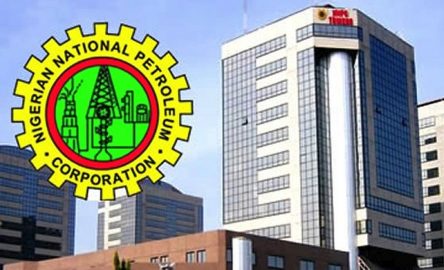The Nigerian National Petroleum Company Limited (NNPCL) may continue to service its crude-for-loan obligations until 2029, as the demand for crude oil by domestic refineries increases.
This development is attributed to the coming onstream of the Port Harcourt and Warri refineries, as well as the Dangote Petroleum Refinery.
According to the Nigerian Upstream Petroleum Regulatory Commission, the Port Harcourt, Dangote, Warri, and other functional refineries will require 123,480,500 barrels of crude oil between January and June 2025.
This rising demand for crude by indigenous refiners is occurring amid NNPCL’s crude-for-loan obligations, which have tied significant volumes of the country’s oil production to various financial commitments.
NNPCL has pledged 272,500 barrels per day of crude oil through a series of crude-for-loan deals totaling $8.86 billion.
This translates to approximately 8.17 million barrels of crude oil being used for different loan deals by the national oil firm every month.
The company’s commitments include Project Panther, a $1.4 billion facility secured in 2022 with a maturity date of 2029. Project Bison, a $1.04 billion pre-export financing facility obtained in 2021, has been fully repaid.
However, other significant financial arrangements, such as Project Eagle and Project Gazelle, continue to contribute to NNPCL’s debt burden.
Operators in the sector have expressed concerns about the potential impact of these deals on crude supply to local refineries.
The Independent Petroleum Marketers Association of Nigeria (IPMAN) has called for caution in the collection of loans in exchange for crude oil, while the Petroleum Products Retail Outlet Owners Association of Nigeria (PETROAN) has emphasized the need for the government to prioritize crude supply to local refineries.
Energy experts have noted that local refineries are not obligated to source their feedstock from NNPCL and can import crude oil from other countries. However, the Nigerian crude remains attractive due to the naira-for-crude deal.
As NNPCL navigates its crude-for-loan obligations, the company is introducing technology to track oil output.
The Nigerian government has also taken steps to increase crude production capacity, aiming to produce above 2 million barrels per day.
The development raises concerns about the potential impact on the nation’s economy, particularly with regards to foreign exchange earnings.
However, industry stakeholders remain optimistic that increased crude production will mitigate any negative effects.
The company’s debt burden, combined with the need to prioritize crude supply to local refineries, presents a complex challenge for the Nigerian government and the oil industry.









Comment here